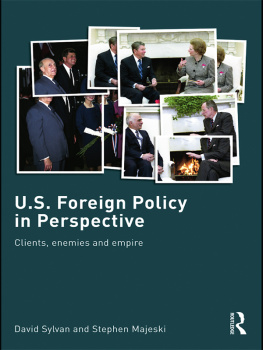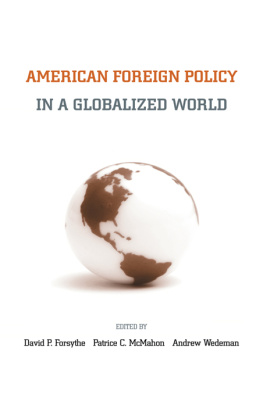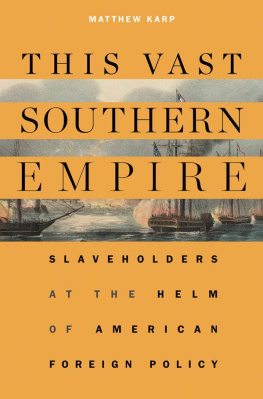David Sylvan - U.S. Foreign Policy in Perspective: Clients, Enemies and Empire
Here you can read online David Sylvan - U.S. Foreign Policy in Perspective: Clients, Enemies and Empire full text of the book (entire story) in english for free. Download pdf and epub, get meaning, cover and reviews about this ebook. year: 2000, publisher: Routledge, genre: Politics. Description of the work, (preface) as well as reviews are available. Best literature library LitArk.com created for fans of good reading and offers a wide selection of genres:
Romance novel
Science fiction
Adventure
Detective
Science
History
Home and family
Prose
Art
Politics
Computer
Non-fiction
Religion
Business
Children
Humor
Choose a favorite category and find really read worthwhile books. Enjoy immersion in the world of imagination, feel the emotions of the characters or learn something new for yourself, make an fascinating discovery.
- Book:U.S. Foreign Policy in Perspective: Clients, Enemies and Empire
- Author:
- Publisher:Routledge
- Genre:
- Year:2000
- Rating:4 / 5
- Favourites:Add to favourites
- Your mark:
- 80
- 1
- 2
- 3
- 4
- 5
U.S. Foreign Policy in Perspective: Clients, Enemies and Empire: summary, description and annotation
We offer to read an annotation, description, summary or preface (depends on what the author of the book "U.S. Foreign Policy in Perspective: Clients, Enemies and Empire" wrote himself). If you haven't found the necessary information about the book — write in the comments, we will try to find it.
David Sylvan: author's other books
Who wrote U.S. Foreign Policy in Perspective: Clients, Enemies and Empire? Find out the surname, the name of the author of the book and a list of all author's works by series.
U.S. Foreign Policy in Perspective: Clients, Enemies and Empire — read online for free the complete book (whole text) full work
Below is the text of the book, divided by pages. System saving the place of the last page read, allows you to conveniently read the book "U.S. Foreign Policy in Perspective: Clients, Enemies and Empire" online for free, without having to search again every time where you left off. Put a bookmark, and you can go to the page where you finished reading at any time.
Font size:
Interval:
Bookmark:

by Routledge
2 Park Square, Milton Park, Abingdon, Oxon OX14 4RN
by Routledge
270 Madison Avenue, New York, NY 10016
A catalogue record for this book is available from the British Library
Sylvan, David, 1953
U.S. foreign policy in perspective : clients, enemies, and empire / David Sylvan and Stephen Majeski.
p. cm.
Includes bibliographical references and index.
1. United StatesForeign relations. 2. United StatesForeign relationsPhilosophy. I. Majeski, Stephen. II. Title.
E183.7.S975 2009
327.73dc22
2008041149
ISBN 10: 0-415-70135-x (pbk)
ISBN 10: 0-203-79945-3 (ebk)
ISBN 13: 978-0-415-70135-8 (pbk)
ISBN 13: 978-0-203-79945-1 (ebk)
Font size:
Interval:
Bookmark:
Similar books «U.S. Foreign Policy in Perspective: Clients, Enemies and Empire»
Look at similar books to U.S. Foreign Policy in Perspective: Clients, Enemies and Empire. We have selected literature similar in name and meaning in the hope of providing readers with more options to find new, interesting, not yet read works.
Discussion, reviews of the book U.S. Foreign Policy in Perspective: Clients, Enemies and Empire and just readers' own opinions. Leave your comments, write what you think about the work, its meaning or the main characters. Specify what exactly you liked and what you didn't like, and why you think so.













